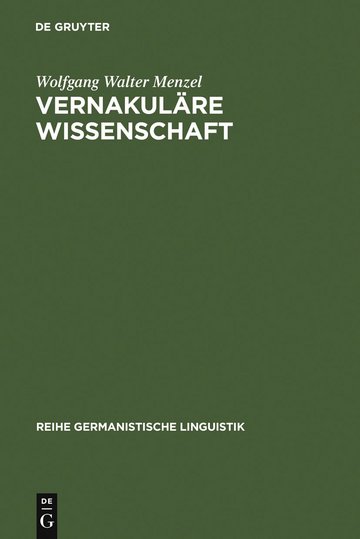Vernakuläre Wissenschaft
Christian Wolffs Bedeutung für die Herausbildung und Durchsetzung des Deutschen als Wissenschaftssprache

| Autor | Wolfgang Walter Menzel |
|---|---|
| Verlag | Walter de Gruyter GmbH & Co.KG |
| Erscheinungsjahr | 1996 |
| Reihe | Reihe Germanistische LinguistikISSN 166 |
| Seitenanzahl | 288 Seiten |
| ISBN | 9783110941036 |
| Format | |
| Kopierschutz | Wasserzeichen |
| Geräte | PC/MAC/eReader/Tablet |
| Preis | 109,95 EUR |
With reference to existing fruits of research on Christian Wolff (1679-1754) and the methods employed to describe languages for special purposes, the study analyzes the conditions conducive to the emergence of German as a vehicle of scholarly communication in the early 18th century. Wolff`s sophisticated ideas on language, his modern and highly influential concept of science and scholarship and the attendant transformation in the style of scholarly thinking in that period are placed in their historical context, tracing the evolution of his mathesis concept to the status of a universal method and its application in scholarly and scientific teaching manuals. In this way it is possible to present a precise appreciation of the specific contribution made by Wolff to the transition from Latin to German as a vehicle of communication in the various branches of scientific and scholarly endeavour. In the process Christian Wolff is clearly delineated as a precursor of the most influental mode of reasoned thought in existence in Germany and an adumbrator of the language of modernity.
















